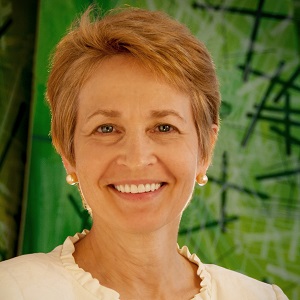Tuesday, April 21, 2015
 by Diana Aviv, President and CEO, Independent Sector
by Diana Aviv, President and CEO, Independent Sector
The landscape in which philanthropies and nonprofits operate is changing permanently and more rapidly than we have experienced in recent memory. Some changes—like new generations of diverse leadership and technological advances—can benefit our work and the causes we serve. Other trends, like widening income inequality and environmental degradation, are grave dangers if left unattended.
For good or ill, all these forces represent challenges and opportunities which will only grow in urgency if we in the charitable and philanthropic community ignore them. We do so at our own peril. Late last month, we took a first step towards looking at the trends sharing our future and figuring out where the opportunities and challenges lie.
Independent Sector and our gracious hosts and supporters at the Ford Foundation gathered on March 24 with about 200 representatives from the New York City nonprofit and philanthropic sector for the first in our nationwide series of community conversations. Several of our partner organizations attended the event, such as the Doris Duke Charitable Foundation, EisnerAmper, Rockefeller Brothers Fund, The Wallace Foundation, and many more. We were thrilled to be joined in conversation by very talented leaders in New York, including Lorie Slutsky, president of the New York Community Trust, our partners; Ronna Brown, president of Philanthropy New York; and Michael Clark, executive director of the Nonprofit Coordinating Committee of New York.
Together we talked about the obstacles we face as we try to fulfill our missions, as well as the examples of successful initiatives and collaborations that have moved the needle on key issues. We call this series Threads as we weave together threads of conversation into the fabric of a stronger future. New York City is the first of more than a dozen events in cities across the country. We will also host a special online event for those who can’t join us in person.
Against the backdrop of these challenges and opportunities, we have three goals that frame the conversations:
- First, we are here to share the trends that will shape the environment in which the charitable sector operates over the next 20-25 years, and discuss how we can work together better to achieve our goals.
- Second, we are anxious to listen to organizations, those funding and doing the work, about what’s holding them back and what new opportunities they’ve found. We will then aggregate the responses, make that information available on our website and identify common themes.
- Finally, we are seeking input about how a national institution like Independent Sector can add value to organizations in New York and elsewhere committed to improving life and the natural world.
What did we learn?
One recurring theme was how to solve the problem of working in isolation, so focused on our own work that we are disconnected from those traveling parallel paths. Susan Danish of the Association of Junior Leagues and others noted that we are in a time of rapid proliferation of nonprofits and that these conversations are crucial to help us think about how we coordinate instead of compete to solve issues. Focusing inward only on our own work means that we will miss opportunities for the real partnership and true collaboration necessary to make significant progress on the critical issues we champion.
Another theme: new models for social change can present both a springboard and a stumbling block for sector organizations. Jeannette Takamura, dean of Columbia University’s School of Social Work, brought up the challenges of how nonprofits and philanthropies can connect with and harness “swarms”—informal groups of individuals working toward a single social goal—and whether institutions are equipped to move fast enough to leverage their energy and potency.
Many in attendance also shared bright spots, or examples of very successful initiatives. Julia Bator of the Robertson Foundation described a computer science education program her foundation funded in NYC schools using a model approach that was based in research and held true to a strong belief that all kids can learn with the right curriculum. Doug Bauer of the Clark Foundation pointed at an example of the resilience of the sector, the NYC Workforce Funders Group that developed a rapid plan to survive the 2008 market crash and continue funding the vital nonprofit work New Yorkers depend on.
This lively and valuable conversation is what we’d hoped to hear when we began planning these Threads events. If you couldn’t attend March 24, we hope you’ll join us at one of our upcoming events to hear more about the trends work we’ve done and share your challenges and bright spots. Together, we’ll develop a more complete map of the issues that shape our world so we can set out on the journey where we are working together in partnership, co-creating the solutions that will lead us into the future.
